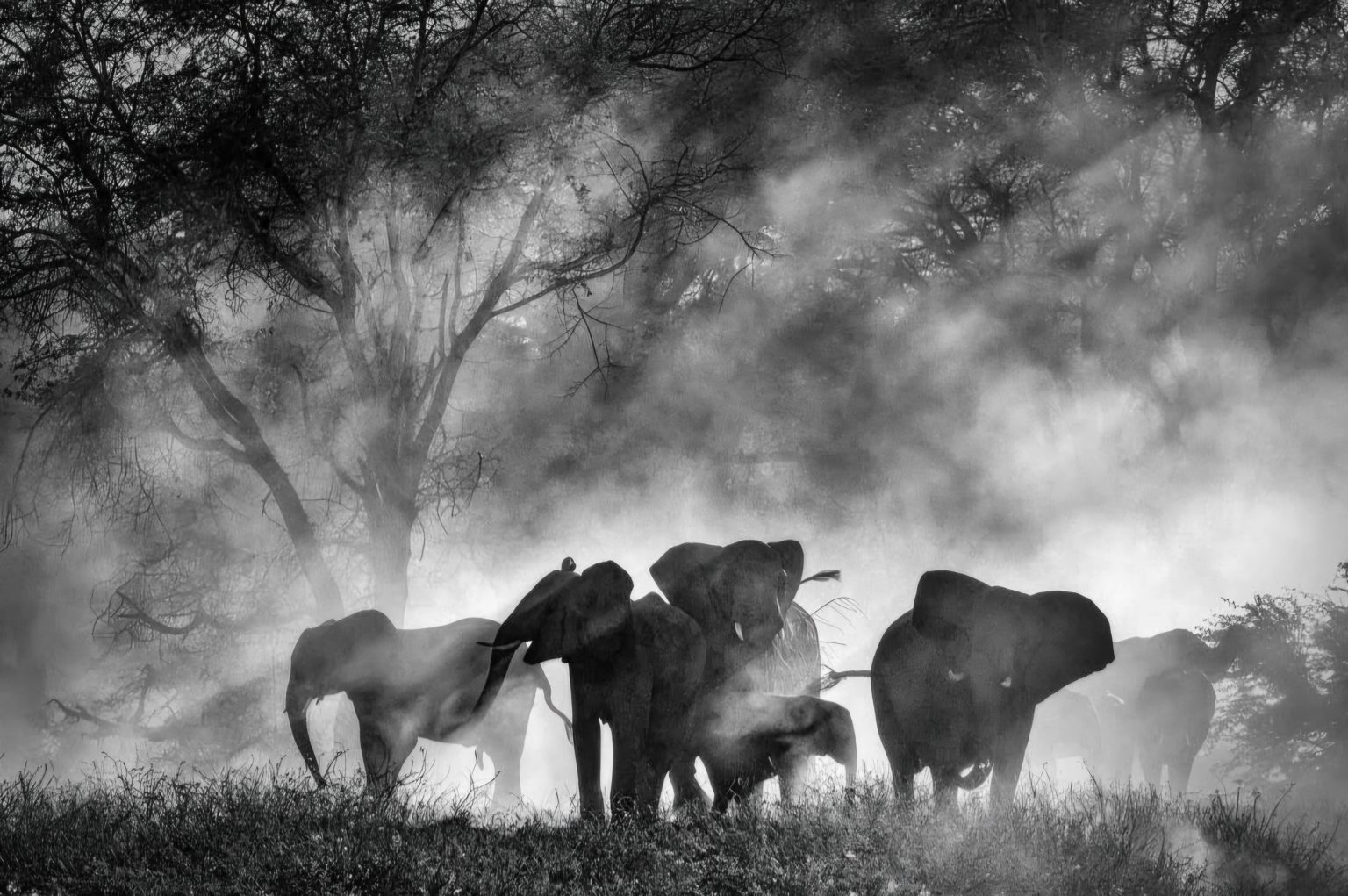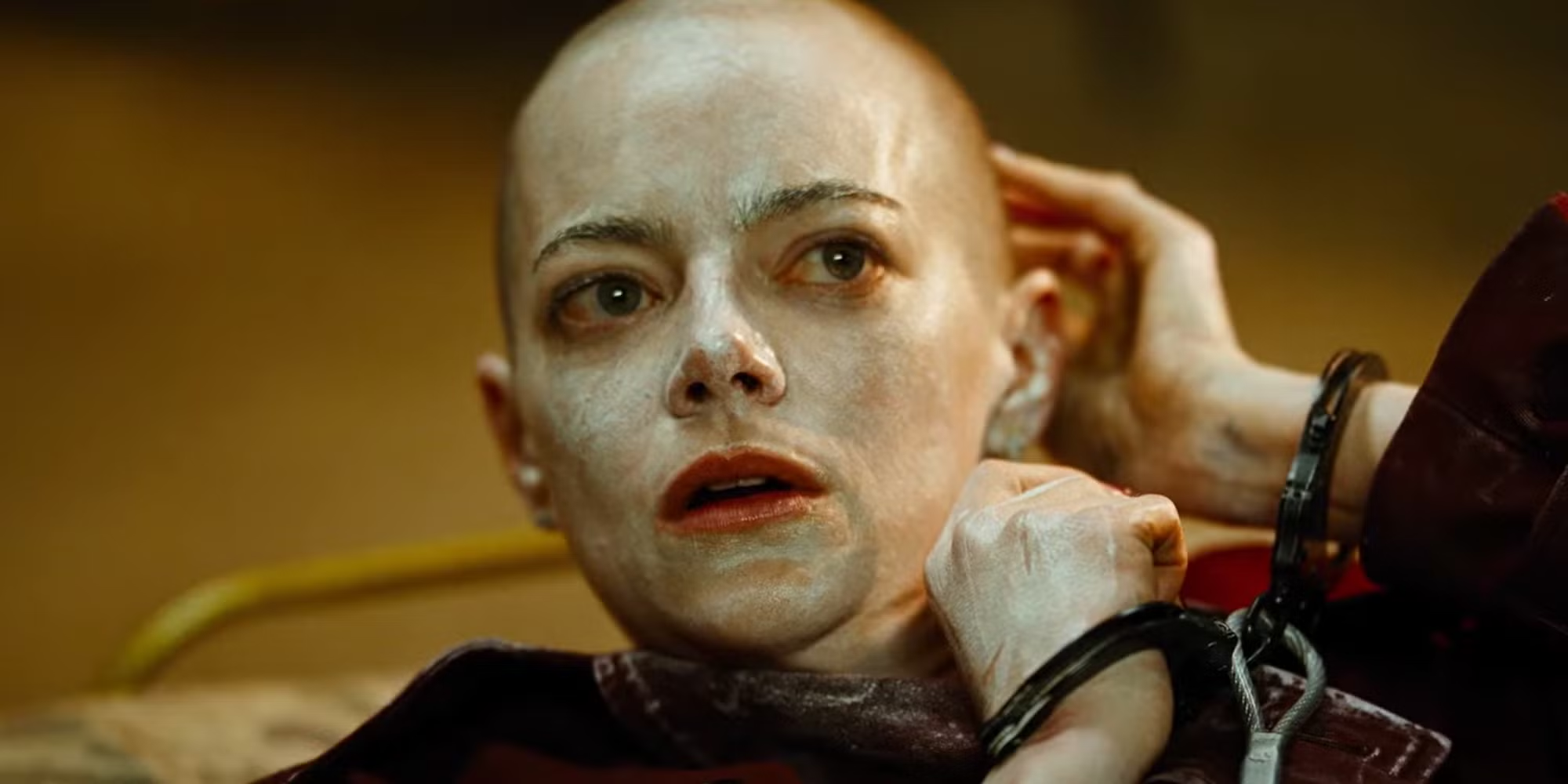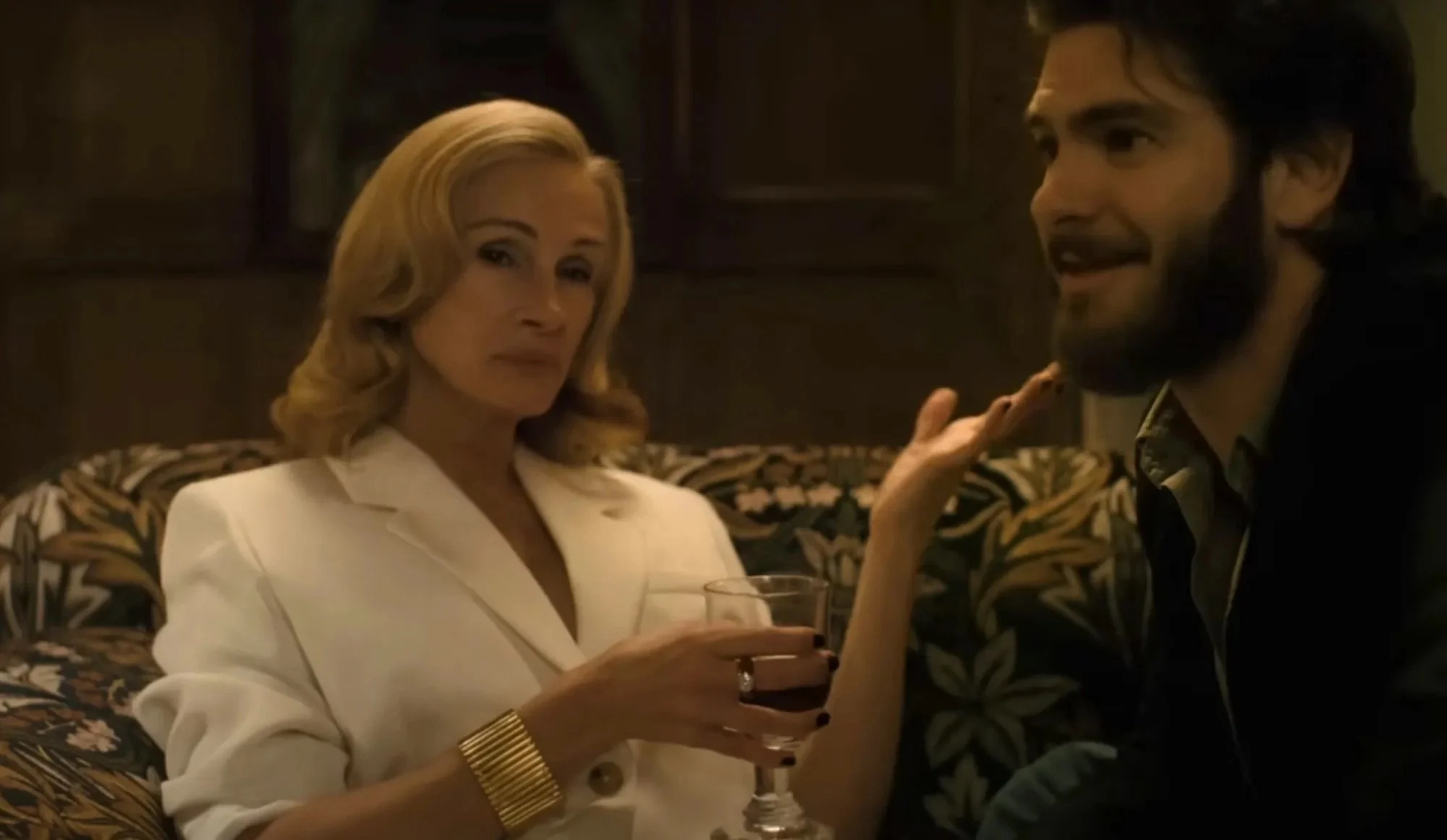
Once again it is my pleasure and my privilege to be reporting to you from Venice, where the Cinema Biennale, known to the American trades as the Venice Film Festival, is unspooling, sort of, but not literally, given that more of the fare is projected from DCPs. Among other things the death of celluloid has deprived us of several fun metaphors.
I’m also once again working with the Biennale College, the great program that funds adventurous filmmaking every year. I’ll be writing about the four films there after I participate in a panel for the College on Monday. I will say that this year’s lineup is the most outstanding I’ve seen in nine years of covering the work. (My first Venice rodeo was in 2015, which would make it ten years, except Covid, which shut down the proceedings in 2020.)
On the evening that I arrived, I saw “Ghost Elephants,” a new documentary by the great German director Werner Herzog. Once considered eccentric by conventional documentary standards, his work in this category, which almost always features the director’s oft-imitated voice narrating, has achieved sufficient mainstream acceptance that he’s now backed by the filmmaking arm of National Geographic. As with so many of his other films, “Ghost Elephants” focuses on a man obsessed: Dr. Steve Boyes, a researched working with the Smithsonian, out in Angola, tracking the rumored pachyderm, a reclusive possible sub-species that’s way bigger than the average elephant. Unlike most of Herzog’s driven protagonists, though, Boyes is not a madman. There’s evidence these guys exist: footprints, dung piles, and the tales of the Kalihari Bushmen, whose culture is the fascinating sub-theme of the movie.
I liked “Ghost Elephants” more than many of my colleagues did; they feel as if they’ve been there and done that with Werner Herzog, and also, they complained, where were the elephants? “Well they’re ‘ghost elephants,’ I reminded these dissenters, but their hearts were hardened and they would not let their quibble go. I thought the film was fine.
Director Noah Baumbach’s “Jay Kelly” was a hotly anticipated kick-off for the festival, and if you’ve been following the trade coverage you’ve no doubt seen how much of its star-studded cast turned out for its premiere. George Clooney stars as a cinematic icon at a sunset of sorts (Clooney is only a couple of years younger than this writer, so the subject is a sensitive one) who’s having trouble reckoning whether his sacrifices—of friendships, family life, that sort of thing—have been ‘Worth It’.
Baumbach co-wrote the script with Emily Mortimer, who also has a part in the film as superstar Jay’s hairstylist. Both Baumbach and Mortimer have spent the better parts of their lives in the arts; Baumbach is the son of an academic and a film critic, while Mortimer’s dad was an acclaimed writer of courtroom mystery and drama. And their star George Clooney is, of course, George Clooney, whose dad is a journalist and television host and whose aunt was the tremendous singer and actress Rosemary Clooney and whose cousin is Miguel Ferrer and you get the idea. Between these three there are several generations worth of lore that can lay the starmaking machinery bare.
The movie opens promisingly by establishing the very particular dynamic between Jay and his adoring and emotional manager Ron, played in a spectacularly multi-layered turn by Adam Sandler. The pair is in Italy, where Jay has been picked to receive an arts festival honor. Problem is he doesn’t want it; another problem is he intends to not show up for his next scheduled shoot, which Ron insists will throw both their worlds into chaos. And so the stage is set for several reassessments and a tense testing of the friendship between Jay and Ron. A friendship that requires Jay to turn over 15 percent of his income to Ron. That wretched old adage “It’s called show business, not show friends” gets an elastic workout in this movie.
There’s Some of gratifyingly blunt and raw material here, not only between Sandler and Clooney but in the dynamic between Clooney’s mega-star and a bitter old friend played by a near-unrecognizable Billy Crudup. The remarkable cast includes Riley Keough, Eve Hewson, Laura Dern, Jim Broadbent, Stacy Keach, and many more, including even Lars Eidinger, who I always think of as “that German guy in all the Assayas movies.” Ultimately, the dominant register is surprisingly sweet. And a bit chewy. The movie is not quite a star-studded marshmallow, but it comes close. Call it “Sunset Boulevard” for Nice Guys.

Absolutely not nice is Yorgos Lanthimos’ latest, “Bugonia.” It’s a Lanthimos film, so of course it’s not nice, but did you know it’s also a remake? Yes, of the well-received 2003 Korean picture “Save the Green Planet!” in fact. The script by Will Tracy (of “Succession” and “The Menu” fame, and hence well-versed in Lanthimos-esque too-cool-for-school misanthropy) changes some character dynamics; here, instead of kidnapping a male executive they believe to be an earth-conquering alien, the lead doofuses abduct a female corporate mover and shaker, played by Emma Stone. This is her fourth film with Lanthimos, which rather reminds me of the relationship between Caligari and Cesar in a film from over a hundred years ago, but that’s just me.
It’s hateful in the extreme, to be sure, but it’s a pretty solid construction in both the content and form departments. Over the years, Lanthimos has shed some of the directorial idiosyncrasies that made his films all but unwatchable (remember the impossibly stilted acting in “The Killing of a Sacred Deer,” and the fisheye lenses dominating his mise-en-scene in pretty much every picture up to and including “The Favourite?”); so, all in all, if you opt to check this out, you certainly will not be bored.
The documentarian Laura Poitras turns out consistently engaging and at times groundbreaking work—her 2022 “All The Beauty and the Bloodshed” is a multi-layered masterpiece about the dangerous intersections of art, society, and government.
“Cover-Up,” co-directed by Poitras and Mark Obenhaus, offers a portrait of the investigative journalist Seymour Hersh, who broke galvanizing stories from the My Lai massacre in Vietnam in the late ‘60s to the Abu Ghraib prison torture scandal of the early 21st century. Poitras approached Hersh to be the subject of a documentary only two decades ago, and he gave her the nod around 2023 when he had reconciled himself to participating in commemoration of his legacy. But he’s not entirely comfortable with being thought of as a legacy subject, and part of the movie’s engagement value is his dyspeptic exchanges with the camera.

Luca Guadagnino’s “After the Hunt” comes to the festival with much “Oooh! Provocative!” buzz. Set at Yale University and depicting both faculty and student body as impossibly well-dressed, it tells the tale of a firestorm in its philosophy department. Julia Roberts plays Alma, who conducts free-wheeling seminars with a lot of cussing and a bit of Adorno-quoting, in the original. “You Will Believe That Julia Roberts Can Speak German” could be a tagline for its theatrical release. Alma’s colleague Hank (Andrew Garfield) is even more freewheeling than Alma, and after a party chez Alma one evening, he invites student Melanie, played by Ayo Edebiri, back to his place for a nightcap.
The #MeToo scenario the movie then constructs and then dismantles is an orgy (if you’ll pardon the term) of glib button-pushing. (The script is by Nora Garrett.) Edebiri’s character doesn’t go for a rape test or alert the police, but instead worriedly confides in Alma. She is not only Black, she’s also filthy rich and her billionaire parents have practically endowed the whole school. Wait, there’s more! She’s also a mediocre student whose dissertation she plagiarized from a real-life philosopher, I think, whose name I wasn’t able to catch. Yowza.
The Hollywood Reporter tells us that, at the press conference for Luca Guadagnino’s “After the Hunt,” a reporter asked star Julia Roberts whether the film “undermines the feminist struggle.” Roberts responded, in part, “The best part of your question is you talking about how you all came out of the theater talking about [the film], and that’s how we wanted it to feel—that everybody comes out with all these different feelings, emotions and points of view.”
Well. I can only speak for myself and a trio of other critics with whom I exited the film, all of whom were asking questions, such as, “How is this movie so bad?” And “Speaking of aliens, do you think they wrote and directed this movie?” And “Is it because the dialogue is so florid, and the actions so utterly disconnected from human behavior?” Or “Is it because the music score by Reznor and Finch is used as a way of periodically dropping sixteen-ton weights (as seen on old Monty Python episodes) on the viewer?” And “What the hell is with Andrew Garfield, and when do you think he’s going to sue Guadagnino for his inadvertently awful performance, which goes to eleven on the wide-eyed psychotic register from the first shot?” I could go on, but I reckon you get the idea.
In my next dispatch, I’ll discuss a picture I actually loved, and, as you will infer, it’ll be about time. Stay tuned.
Source link

